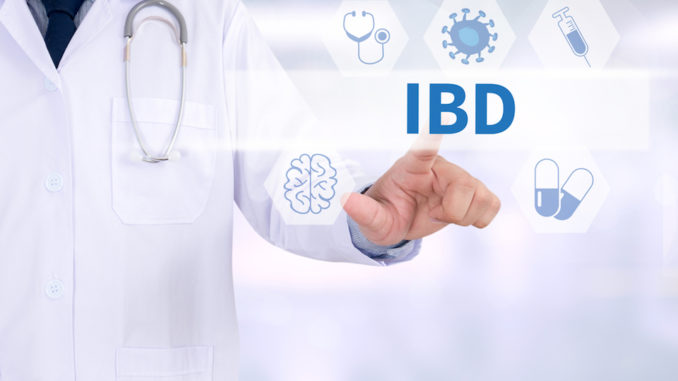
Vedanta Biosciences, a clinical-stage company developing a new category of therapies for immune-mediated diseases based on rationally-defined consortia of human microbiome-derived bacteria, announced the initiation of a Phase 1 clinical study in healthy volunteers of VE202, the Company’s orally-administered, live biotherapeutic product (LBP) candidate for inflammatory bowel disease (IBD). The study is being conducted by Janssen Research & Development, LLC. In conjunction with the initiation of this study, Vedanta Biosciences will receive $12 million from Janssen in milestone payments as part of an ongoing collaboration that has development and commercialization milestone payments of up to a total of $339 million in addition to royalty payments.
There is significant evidence highlighting the role of the microbiome in the pathogenesis of IBD. Current treatments effectively block mediators of inflammation, but they do not address the underlying alterations in the gut microbiota that may be driving the inflammation in the first place, leaving a need for safe approaches that address this aspect of the disease,”
said Bernat Olle, Ph.D., Co-founder and Chief Executive Officer of Vedanta Biosciences.
To our knowledge, VE202 is the first drug candidate based on a rationally-defined bacterial consortium to enter the clinic for an autoimmune disease. We are pleased to collaborate with Janssen’s team, which has produced several important drugs for people living with IBD.”
VE202 is based on the work of Vedanta Biosciences co-founder Kenya Honda, Ph.D., of Keio University, who in 2011 published in Science foundational research demonstrating that members of the gut microbiota could impact the number and activity of regulatory T cells in the gut mucosa. In two further publications in Nature, in collaboration with Vedanta Biosciences, Honda’s group identified cellular mechanisms driving these and other immune-microbiota interactions and demonstrated their potential utility in disease models. Informed by this work, Vedanta Biosciences advanced VE202, a drug candidate consisting of a rationally-defined consortium of regulatory T cell – inducing bacteria.
Randomized clinical trials of fecal microbiota transplants (FMT) have provided strong evidence for the microbiome’s involvement in inflammatory bowel diseases albeit with varying clinical success depending on the donor used and the frequency of instillations. The inconsistent composition of fecal donor material and the need for chronic administration make FMT a challenging modality for treating IBD,
said Balfour Sartor, M.D., Midget Distinguished Professor of Medicine, Microbiology & Immunology and Co-Director of the UNC Multidisciplinary IBD Center at the University of North Carolina at Chapel Hill.
I believe that a better, more consistent therapeutic approach is to use a well-characterized, rationally-defined, and orally-delivered LBP using bacterial species normally found in the intestine of healthy subjects. I am encouraged by the work Vedanta Biosciences is conducting, and I look forward to the results of this latest clinical study.”
Vedanta Biosciences controls an extensive foundational patent estate in the United States, Europe and Japan broadly covering pharmaceutical compositions including Clostridium bacterial strains and methods of use for therapeutic products, including both consortia of bacterial strains and spore-forming fractions based on beneficial bacteria. The intellectual property estate covers several of Vedanta Biosciences’ therapeutic candidates in development. The company has also been issued patents specifically around the composition and use of VE202 in IBD.

